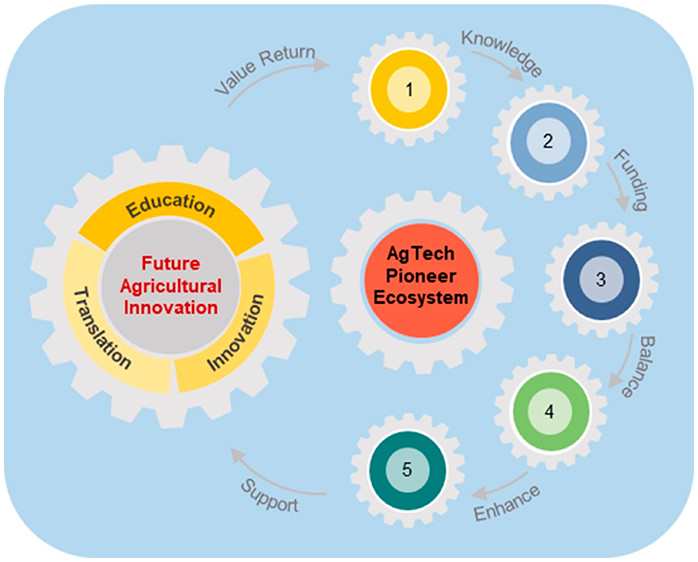Entrepreneurs: Pioneers of Innovation and Business

Entrepreneurs, the driving force behind innovation and economic growth, play a pivotal role in shaping the world’s business landscape. In this comprehensive article, we will explore the multifaceted world of entrepreneurs, their characteristics, challenges, success stories, and the profound impact they have on society. By the end of this article, you’ll have a deep understanding of what it means to be an entrepreneur and how their endeavors shape our world.
Chapter 1: The Essence of Entrepreneurship
1.1 Defining Entrepreneurs
Entrepreneurs are individuals who identify opportunities, take risks, and create new businesses or innovative solutions to existing problems.
1.2 Entrepreneurship vs. Business Ownership
Entrepreneurship encompasses more than just business ownership; it involves a mindset of innovation, adaptation, and a willingness to take calculated risks.
1.3 Historical Evolution
Entrepreneurship has a rich history, with iconic entrepreneurs like Thomas Edison, Henry Ford, and Steve Jobs leaving a lasting legacy.
Chapter 2: Characteristics of Successful Entrepreneurs
2.1 Vision
Entrepreneurs possess a clear vision of what they want to achieve and how their ideas can make a difference.
2.2 Risk-Taking
Calculated risk-taking is a hallmark of entrepreneurship, as entrepreneurs are willing to invest time, money, and effort into unproven concepts.
2.3 Resilience
The ability to bounce back from failures and setbacks is essential, as entrepreneurship is often marked by challenges and uncertainty.
Chapter 3: Types of Entrepreneurs
3.1 Small Business Entrepreneurs
Small business owners and operators drive local economies and provide valuable services within their communities.
3.2 Scalable Startups
Tech startups and high-growth ventures aim to disrupt industries and achieve rapid expansion.
3.3 Social Entrepreneurs
Social entrepreneurs focus on solving societal issues and often operate as nonprofits or socially responsible businesses.
Chapter 4: The Entrepreneurial Journey
4.1 Idea Generation
The journey begins with the identification of a problem or opportunity and the development of a unique solution.
4.2 Business Planning
Entrepreneurs create detailed business plans that outline their goals, strategies, and financial projections.
4.3 Funding and Capital
Securing funding, whether through bootstrapping, angel investors, venture capital, or crowdfunding, is a critical step in turning ideas into reality.
Chapter 5: Challenges Faced by Entrepreneurs
5.1 Financial Constraints
Lack of access to capital and limited financial resources can hinder entrepreneurial endeavors.
5.2 Market Competition
Navigating a competitive marketplace requires innovation and differentiation to stand out.
5.3 Work-Life Balance
Entrepreneurs often face long hours and high stress, impacting their work-life balance.
Chapter 6: Success Stories and Inspirations
6.1 Elon Musk
Elon Musk’s ventures, including SpaceX and Tesla, showcase the impact of audacious entrepreneurship on space exploration and sustainable transportation.
6.2 Oprah Winfrey
Oprah Winfrey’s media empire demonstrates how entrepreneurship can lead to influential platforms for advocacy and entertainment.
6.3 Jeff Bezos
Jeff Bezos’ vision for Amazon transformed e-commerce and cloud computing, making him one of the world’s richest entrepreneurs.
Chapter 7: The Impact of Entrepreneurship
7.1 Economic Growth
Entrepreneurship drives job creation, economic development, and technological progress.
7.2 Innovation and Disruption
Entrepreneurs disrupt traditional industries, spurring innovation and improving products and services.
7.3 Social and Environmental Change
Social entrepreneurs tackle global challenges, from poverty and education to environmental sustainability.
Chapter 8: The Future of Entrepreneurship
8.1 Tech and Artificial Intelligence
The integration of technology and AI will continue to open new possibilities for entrepreneurs across various sectors.
8.2 Sustainability and Social Responsibility
Entrepreneurs will increasingly focus on sustainable and socially responsible business models.
8.3 Global Collaboration
Entrepreneurs will collaborate on a global scale, transcending geographical boundaries to address pressing issues.
Chapter 9: Cultivating Entrepreneurship
9.1 Education and Training
Educational programs and training initiatives foster entrepreneurial skills and mindsets.
9.2 Support Ecosystems
Incubators, accelerators, and mentorship networks provide critical support for aspiring entrepreneurs.
9.3 Government Policies
Government policies, such as tax incentives and regulatory frameworks, can encourage entrepreneurship.
Chapter 10: Conclusion
Entrepreneurs are the architects of change, driving progress and shaping the future. Their diverse backgrounds, innovative ideas, and unwavering determination fuel economies and enrich societies. As the entrepreneurial landscape continues to evolve, it is essential to recognize and celebrate the contributions of entrepreneurs while nurturing the next generation of visionaries. Entrepreneurship is not just a career path; it is a force that propels us forward, pushing the boundaries of what is possible and inspiring us to dream, innovate, and create a better world.



